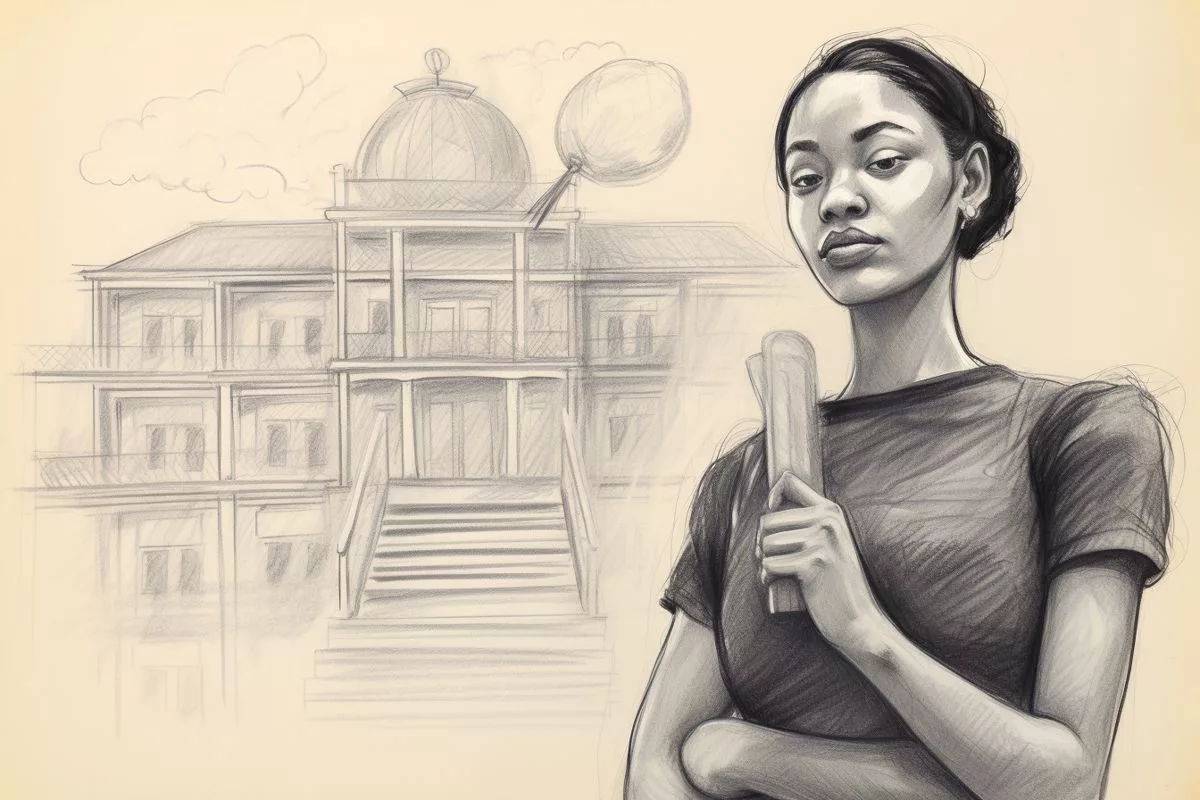Influencer and podcaster Mitchelle Karoro caused controversy in South Africa when she posted on social media about her domestic worker’s reluctance to work during the festive season, leading to public backlash and a nationwide discussion about the dignity and entitlements of domestic workers. Many social media users criticised Karoro for her disregard for her worker’s entitlements, highlighting the importance of fair treatment of domestic workers and their rights, as stated in the Basic Conditions of Employment Act’s Domestic Worker Sector. The incident has sparked an ongoing discourse about the treatment of domestic workers and the power of influencers in shaping societal standards.
The Blurring Lines of Digital Influence: A Controversial Incident in South Africa
A social media proclamation by influencer and podcaster, Mitchelle Karoro, sparked a nationwide discussion surrounding the dignity and entitlements of domestic workers in South Africa. Her posts revealed her quandary over her domestic worker’s reluctance to resume work during the festive season and led to public backlash, bringing attention to the struggles and rights of domestic workers. The ongoing discourse emphasizes the necessity for fair treatment of domestic workers.
The Controversy Sparks
Within the digital domain, the line separating personal from public frequently becomes ambiguous, resulting in unforeseen disputes. A recent controversy instigating heated discussions amongst South Africans originates from a social media proclamation by influencer and podcaster, Mitchelle Karoro. Her statements have incited nationwide dialogue surrounding the dignity and entitlements of domestic workers.
Mitchelle Karoro, who communicates with thousands via her podcast and X account, disclosed a private conflict that unintentionally drew attention to the wider topic of domestic workers’ entitlements. It appears her domestic worker was reluctant to resume work during the festive season – a situation Ms. Karoro deemed unacceptable.
She revealed her quandary on her X account, stating, “I informed my helper today that she will get a break only on Christmas Day and Boxing Day. She must return for New Year’s since we are planning a group celebration with friends.” When her domestic worker expressed the wish to take both holidays off, Ms. Karoro issued a choice – work on New Year’s or forfeit her job. The worker’s silence in response led Ms. Karoro to contemplate firing her to prevent “unnecessary drama and stress.”
The Public Backlash
The posts, which quickly spread across the internet, struck a chord with many South Africans, stunned at Ms. Karoro’s “unreasonable” demand. Responses varied from shock to outrage, as social media users expressed their disapproval of her presumptuousness and disregard for her domestic worker’s entitlements.
One user, @Ziggy_Diver1, commented, “She stays with you throughout the year, and you believe she doesn’t deserve a break on both days?” He proposed employing a house watcher or child-minder as an alternative. Another user, @dramadelinquent, reminded Ms. Karoro that New Year’s is a public holiday, and if she insists on her domestic worker working, she ought to pay double her daily wages. @kokkyt chided the influencer for refusing her helper festive leave, asserting that it’s a time for family and the wish to spend it with dear ones should be honored.
The public anger was perfectly summarised in a tweet from @zwidenyapT featuring an image captioned, “You are an evil person.” This tweet rapidly gained popularity, adding fuel to the growing backlash.
A Bigger Cause
In the midst of the social media tempest, it’s crucial to highlight the rights of domestic workers as stated in the Basic Conditions of Employment Act’s Domestic Worker Sector. As per the Act, domestic workers are granted certain privileges, which comprise the right to annual leave and public holiday wages.
The Mitchelle Karoro incident serves as a stark reminder of the profound influence of influencers and their extensive platforms on societal standards and dialogues. Even as the uproar caused by Ms. Karoro’s tweets continues to echo through social media, one thing stands out – this dispute has highlighted the struggles of domestic workers and underscored the significance of their rights, propelling an important discussion into the public domain.
Emphasising Fair Treatment
The ongoing discourse emphasises the necessity for equitable treatment of domestic workers. As this conversation continues, it’s imperative that domestic workers’ rights are maintained, venerated, and fervently defended. As we progress, we hope this episode acts as a trigger for positive transformation in how we regard and treat domestic workers.
What was the controversy surrounding Mitchelle Karoro’s social media post?
Mitchelle Karoro’s social media post sparked controversy in South Africa when she revealed on her account that her domestic worker was reluctant to work during the festive season, leading to public backlash and a nationwide discussion about the dignity and entitlements of domestic workers.
What was the public response to Karoro’s post?
The public response to Karoro’s post varied from shock to outrage, with many social media users criticising her for her disregard for her domestic worker’s entitlements and proposing alternative solutions.
What are the rights of domestic workers as stated in the Basic Conditions of Employment Act?
Domestic workers are granted certain privileges as per the Basic Conditions of Employment Act’s Domestic Worker Sector, which comprise the right to annual leave and public holiday wages.
What does the Mitchelle Karoro incident serve as a reminder of?
The Mitchelle Karoro incident serves as a stark reminder of the profound influence of influencers and their extensive platforms on societal standards and dialogues.
What is the ongoing discourse surrounding the incident?
The ongoing discourse emphasises the necessity for equitable treatment of domestic workers and underscores the significance of their rights, propelling an important discussion into the public domain.
How can we positively transform the way we regard and treat domestic workers?
As we progress, it’s imperative that domestic workers’ rights are maintained, venerated, and fervently defended. We hope this episode acts as a trigger for positive transformation in how we regard and treat domestic workers.













